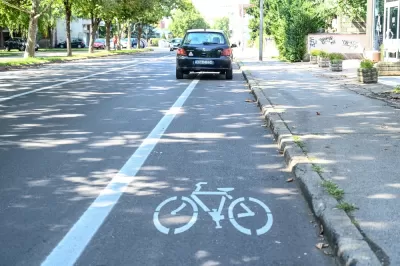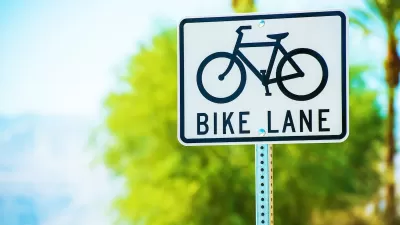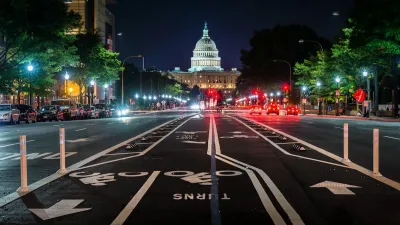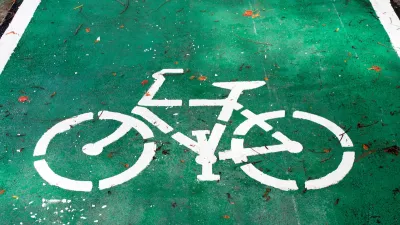The proposal would award people who report blocked bike lanes a percentage of resulting tickets. Critics say the city must address the underlying reasons for blocked bike lanes first.

Ann Arbor, Michigan is the latest city to consider a proposed ‘bounty’ for citizens who report blocked bike lanes, reports Ryan Stanton for MLive. The policy, which would award people who submit a report of a blocked bike lane a percentage of the resulting citation revenue, has also been proposed in New York City and Austin, Texas.
Some Ann Arbor city council members argue the policy would be unfair to delivery workers and other “folks just trying to work” who are the victims of “Planning failures like not requiring drop-off areas for deliveries, creating protected bike lanes without meaningful public input or proper notice of affected property owners, requiring zero setbacks and doing away with parking minimums”—a not-so-tacit admission of the city’s role in creating the problem. City Council Member Erica Briggs, D-5th Ward, says “Solving the problem requires engineering, education and enforcement solutions.”
A recent proposal from Manhattan Borough President Mark Levine would take a different approach in New York that would begin to address infrastructure shortfalls, as another article on Spectrum News 1 describes. “Under that proposal, delivery workers would have access to parking garages to unload and sort packages, some deliveries would be made using larger electric cargo bikes and more curbside loading zones would be added to every residential neighborhood.”
FULL STORY: Should Ann Arbor offer bounty for reporting drivers blocking bike lanes?

Alabama: Trump Terminates Settlements for Black Communities Harmed By Raw Sewage
Trump deemed the landmark civil rights agreement “illegal DEI and environmental justice policy.”

Planetizen Federal Action Tracker
A weekly monitor of how Trump’s orders and actions are impacting planners and planning in America.

Why Should We Subsidize Public Transportation?
Many public transit agencies face financial stress due to rising costs, declining fare revenue, and declining subsidies. Transit advocates must provide a strong business case for increasing public transit funding.

Understanding Road Diets
An explainer from Momentum highlights the advantages of reducing vehicle lanes in favor of more bike, transit, and pedestrian infrastructure.

New California Law Regulates Warehouse Pollution
A new law tightens building and emissions regulations for large distribution warehouses to mitigate air pollution and traffic in surrounding communities.

Phoenix Announces Opening Date for Light Rail Extension
The South Central extension will connect South Phoenix to downtown and other major hubs starting on June 7.
Urban Design for Planners 1: Software Tools
This six-course series explores essential urban design concepts using open source software and equips planners with the tools they need to participate fully in the urban design process.
Planning for Universal Design
Learn the tools for implementing Universal Design in planning regulations.
Caltrans
Smith Gee Studio
Institute for Housing and Urban Development Studies (IHS)
City of Grandview
Harvard GSD Executive Education
Toledo-Lucas County Plan Commissions
Salt Lake City
NYU Wagner Graduate School of Public Service





























